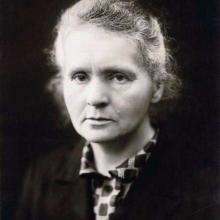Q&A with Prof. Gabi Barbash
Top Israeli public health expert discusses COVID-19 contagion, containment efforts
Briefs

Prof. Gabriel Barbash, MD, MPH, is Director General Emeritus of Israel’s Ministry of Health and Director of the Weizmann Institute’s Bench-to-Bedside Program, which brings together scientists and physicians studying and developing therapies and other solutions for disease.
He is a professor of epidemiology and preventative medicine at the Sackler School of Medicine at Tel Aviv University and was formerly the CEO of the Tel Aviv Sourasky Medical Center (Ichilov). In the 1990s, he oversaw a program to contain a surge in tuberculosis cases in Israel that accompanied the arrival of new immigrants from Ethiopia and the former Soviet Union.
Today, he is at the forefront of Israel’s public health effort to contain and eradicate the outbreak of the COVID-19 virus. In Israel, the number of confirmed cases continues to rise, at about 400 as of March 18. There have been no deaths.
Q: Israel’s measures for containing the coronavirus are some of the more stringent as compared to many other countries. Why has Israel’s public health system taken such an aggressive approach?
Not all countries are taking it seriously enough, and that’s regretful. We in Israel are taking it very seriously, and we are doing so because this virus has proven to be highly contagious, with a high infectivity rate. Not only will many people be infected, but its aggressiveness—its case fatality rate, or CFR—is extremely high, estimated to be between 3 times to 20 times higher than that of the seasonal flu.
That is, somewhere between 0.5 to 4 percent of people infected with coronavirus are expected to die, compared to the mortality rate of the seasonal flu, which is between 0.1 and 0.2 percent.
Let’s go back to the infectivity rate, which will give us a sense of the sheer numbers. The percentage of people infected with the seasonal flu is about 10 percent of the population in any given season. The percentage of people infected with coronavirus is expected to be 60 to 70 percent. That sheds a light on the significance of the CFR: When you talk about even a half of a percent of 60 percent of the population, that’s an enormous number.
If we were to let the virus spread, with no intervention, we would be talking about 60 to 70 percent of the population infected. The infection rate is unlike anything we have ever seen since probably 1918 with the Spanish flu.
Q: How effective is the home quarantine measure in controlling the spread of the virus?
The home quarantine seems to be the only effective measure we currently have against coronavirus. What we are trying to do is decrease the number of patients overall, and slow the number of new patients so as to enable the healthcare system to deal with small numbers of patients at any given time. We are trying to flatten the [infection rate] curve.
Home quarantine is effective because it not only isolates the people who are infected with coronavirus and are symptomatic, and who can manage their own care at home, but it also isolates the people who are infected and not aware of it, because they are asymptomatic.
At this stage, we are only testing people who are symptomatic, so quarantine and social distancing are the best measure that can be taken to contain this. We have done a good job, I believe, conveying the importance of these two measures.
Q: In what ways has Israel dealt with the pandemic better or differently from other countries?
Israel appears to have been very successful in blocking the “import” of the coronavirus from abroad, both by preventing foreign citizens from entering Israel and by isolating Israeli citizens and foreign residents who returned from abroad by requiring that they enter home quarantine immediately.
This effort was very successful, and then we moved to the next phase—containing the contagion within Israel—which calls for different measures that are only being implemented in very recent days. And my feeling is that we are only seeing the beginning of it.
Q: If all countries don’t take the same aggressive steps and do their part, how can Israel fully protect its citizens? Can Israel hermetically seal itself off from the world?
Actually, we pretty much can. At the point when Israel blocked air travel between it and the rest of the world, and imposed restrictions on everyone entering the country, we drastically minimized the effects of inadequate measures, or mishandling, by other governments. We are now on our own. We have largely isolated ourselves from the rest of the world.
Q: Does the outbreak underscore the vulnerability of the world to disease, and underline the necessity for scientific research? What can you say here about the role of science?
The timeframe to translate research into practice is years, and even to develop a vaccine takes at least a year. Science is an investment over the long haul. What is amazing is that despite the high level of research and the vast range of research investigations across the globe in the 21st century, there lurks a virus within bats that has the ability to surprise us all, to upend the world, wreak havoc on economies, and kill people. So what this underscores, I believe, is that science must be everywhere, considering every possibility, trying to be one step ahead of the game at all times.








